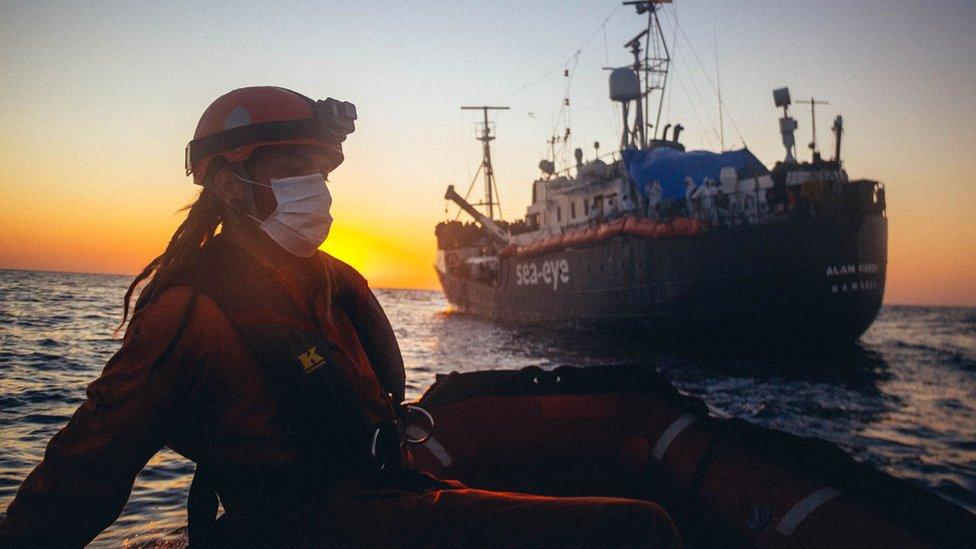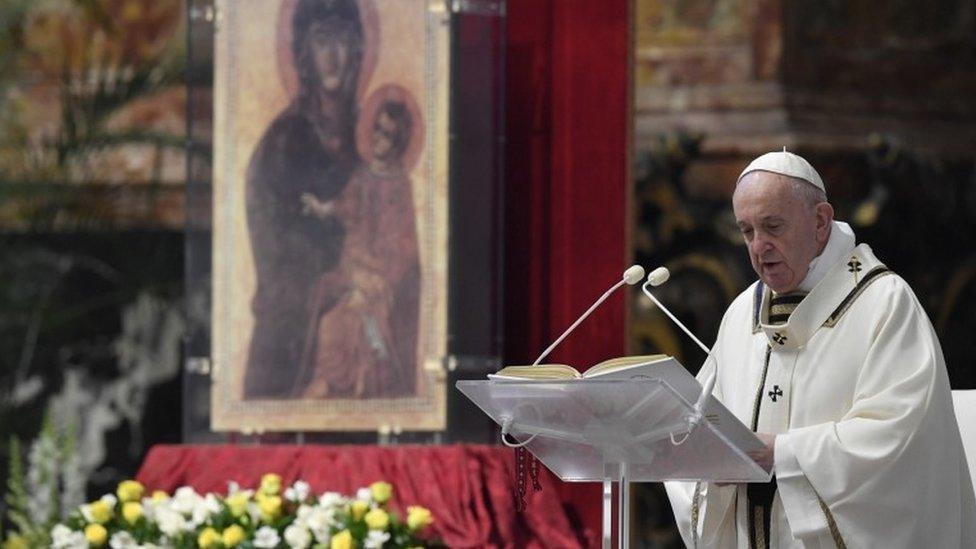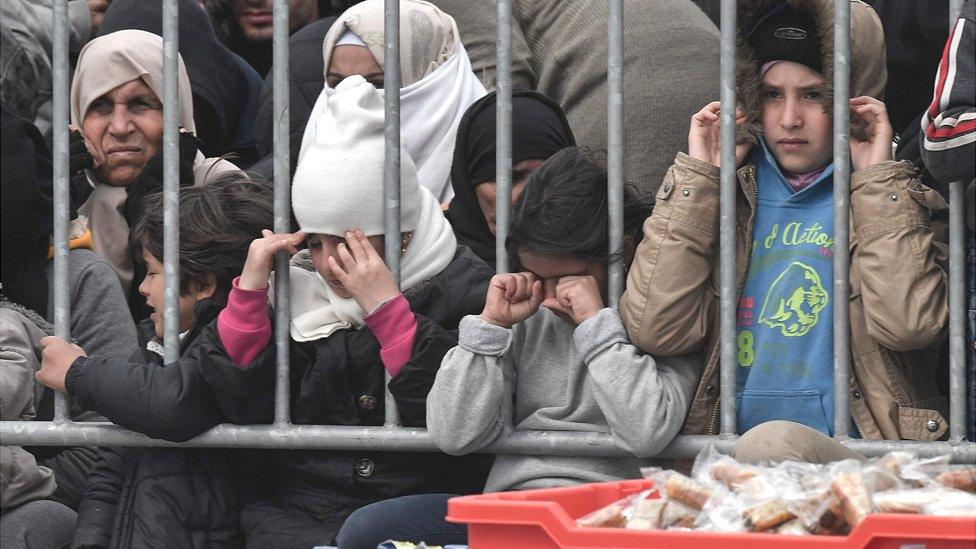Coronavirus: Italy orders rescued migrants onto quarantine ship
- Published

The Alan Kurdi, operated by German group Sea-Eye, has been refused entry by Italy and Malta
Italy has ordered 156 migrants on board a German rescue ship off the western coast of Sicily to be transferred to another vessel and quarantined.
The migrants, mostly from Africa and the Middle East, must then undergo health checks, Italian officials said.
The German rescue vessel, Alan Kurdi, has been refused access to Italian and Maltese ports over coronavirus fears.
Italy's transport ministry said the move was necessary because Sicily's health services were already stretched.
Allowing the migrants to disembark from the Alan Kurdi ship, operated by the German humanitarian group Sea-Eye, would put too much pressure on the island's local authorities, Italy's civil protection chief Angelo Borrelli said.
As of Sunday, Italy as a whole had reported 19,899 coronavirus deaths, external and more than 156,363 confirmed infections.
The country reported 431 deaths over a 24-hour period - the lowest daily rise in more than three weeks.

A SIMPLE GUIDE: How do I protect myself?
AVOIDING CONTACT: The rules on self-isolation and exercise
HOPE AND LOSS: Your coronavirus stories
VIDEO: The 20-second hand wash

Mr Borrelli signed a document on Sunday ordering the Coast Guard, with the assistance of the Italian Red Cross, to provide a ship "in the next few hours" to quarantine and test the 156 migrants near Italian territorial waters, local media report.
No decision has been made about the final destination of the migrants, who were rescued from small boats in distress off the Libyan coast, officials said.
Italy has previously said that migrants rescued and brought to its shores become the responsibility of the European Union (EU) and should be fairly distributed among member states.
Sea-Eye has also called on EU leaders to find a more permanent solution to the migrant crisis in the Mediterranean.
Earlier this month, the EU's top court - the European Court of Justice - ruled that Poland, Hungary and the Czech Republic had broken EU law by refusing to take in refugees under an agreement to ease the burden faced by Italy and Greece.
In Greece, a number of migrant facilities were recently quarantined after residents tested positive for coronavirus. Aid groups have warned that an outbreak of Covid-19 at overcrowded camps - where sanitation is poor - could allow the virus to spread quickly.
There have so far been no confirmed cases of the virus in camps on five Greek islands, where roughly half of all EU asylum seekers live.
Migrants in a Greek camp filmed the living conditions inside and the challenges of avoiding coronavirus
- Published12 April 2020

- Published5 April 2020

- Published2 April 2020
